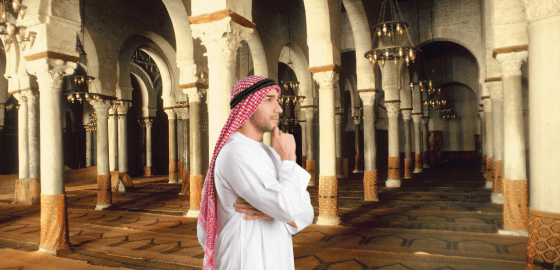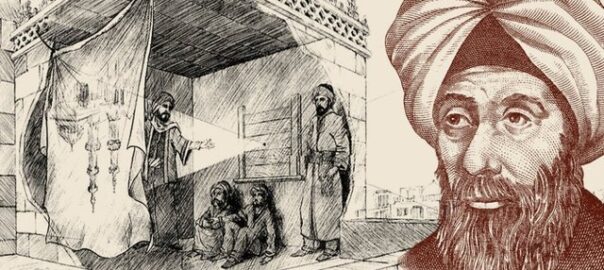A Problem of the heart
Personal Development in the 21st Century tends to be a very selfish affair. The subtle and growing influence of individualism has caused many people to pursue their goals at all costs, with no regard for the impact it has on anyone else. We see this at every level of society. From people who break up families to pursue their personal goals, to companies that turn a blind eye to slavery to produce cheap products. The fulfillment of personal goals takes precedence over everything else in the new world.
In pursuit of their goals and dreams, people today are willing to put others down, turn a blind eye to injustice, pretend to be someone they are not, and break ties with anyone they view as an inconvenience in the path of their worldly goals. A selfish self-centered approach to goal-setting and personal development is slowly becoming the norm. When personal development is not grounded in Islamic foundations, its roots become shaky and its results potentially destructive.
The topic of individualism and its effects on the Muslim world is something I hope to explore in more detail in a later article. Here I want to focus on a potential Islamic solution to this problem. One potential solution is for Muslims to ground their personal development in the Islamic concept of Akhlāq. By laying a foundation of Akhlāq, the believer builds a wall of protection that allows him to pursuit his goals in a halal manner that does not compromise the dignity or rights of anyone else.
Akhlāq and Adāb
The study of personality traits in Islam is divided into two primary categories; Akhlāq and Adāb. Akhlāq refers to our inner characteristics like honesty, sincerity, and humility. These are the deeds of the heart and form the foundation of our personality. Akhlāq includes our attitude towards Allah, ourselves, and others. It is a reflection of who we really are deep down inside.
Adāb refers to our external manners and etiquette, our speech and actions. These are things like smiling, giving charity, speaking politely, and assisting people. These two subjects work together to make a Muslim beautiful, both inside and out. Reflecting on which of the two is more important, my conclusion is that it is Akhlāq that is more important. This is because it is possible to fake good manners, but nobody can fake good character. You can fake your words and deeds, but you cannot fake the actions of the heart. Humans have an intrinsic way of recognizing when someone is insincere towards them. We are able to read lies in people’s eyes, jealousy in people’s smiles, and arrogance in people’s tone of voice. The diseases of the heart manifest on the body in ways that betray the individual. This is often the case when a person only focuses on the external and forgets to work on the heart.
Keeping this definition in mind, the concept of Akhlāq becomes integral for curbing many of the wrong paths people choose when pursing their life goals. To put it simply; when a Muslim has great Akhlāq, he/she will ensure that in pursuing their worldly goals, they do not harm their own Afterlife, or the lives and feelings of anyone else. Therefore, working on our Akhlāq should take precedence over chasing worldly goals.
The Benefits of Akhlāq
When working on one’s character, the following characteristics are crucial for ensuring that our pursuit of worldly goals does not endanger our afterlife. These are the primary characteristics of the believer, and every Muslim should prioritize working on these, even if one does not have any interest in pursuing worldly goals.
- Sincerity – The character of the believer is grounded primarily in their intentions. This is crucial to every aspect of our lives. This religion is sincerity. Sincerity towards Allah, and His Creation. A sincere believer will not pursue fame or shady goals. A sincere believer will live an ethical life and pursue his goals only through ethical means. A sincere believer will not be two-faced, more will he deceive anyone purposely.
- Humility – Humility is the essence of good character. In my book Best of Creation, I showed how humility does not contradict self-confidence. A true believer is both confident in the abilities Allah has given him, while humble about it. This balance helps the believer achieve goals without developing a destructive ego. Developing a sense of humility is essential for curbing the ego and remaining grounded in one’s journey of life. Without humility, every successful goal has the potential to turn an individual into a nasty arrogant show-off.
- Empathy – Individualism has caused too many people to lose any sense of consideration for the feelings of others. All that matters is my desires, my goals, and my life. Consumed by this mindset, too often we hurt our parents, spouses, children, and the rest of society in chasing worldly goals. No goal is worth breaking ties and hurting people. The believer loves for his brother what he loves for himself. This empathy forms a core part of his personality, guiding his plans and goals so that he can pursue them without causing any harm in the process.
- Justice – A sense of justice is necessary for any believer. Universal Justice is a fundamental part of Islamic Law, and therefore should be an ingrained part of every believer’s character. Turning a blind eye to oppression in order to fulfill one’s personal goals is a compromise a believer should never willingly make. Every decision must be guided by justice, to ensure that in pursuing our goals, we do not contribute to the oppression of anyone else.
- Selflessness – Selflessness here refers to the opposite of selfishness. It means wanting for others what you want for ourself. The idea that selflessness means neglecting one’s own needs and harming oneself is a misconception and does not fit the Islamic definition of selflessness. Selflessness simply means not being selfish. The believer wants success in both worlds, for everybody. His actions are guided by this belief which fuels every goal he develops. As a result, he rarely sets goals that are selfish. His focus is on benefiting society and helping as many people as possible achieve their goals in both worlds. A selfless person will not harm others in his pursuit of success.
Conclusion
The believer is guided by Islam in everything he/she does. Worldly goals are secondary to one’s relationship with Allah, one’s family ties, and one’s spiritual development. In pursuing worldly goals, the believer grounds his goals in sincerity, humility, empathy, justice, and selflessness. These characteristics guide him to the best goals that benefit humanity in both worlds. In doing so, the believer escapes the traps of individualism and achieves higher deeper spiritual goals that have a lasting impact long after he has left the world.
To learn more about the Islamic approach to personal development, get hold of my latest book Productivity Principles of Umar II, now available in PDF, Paperback, and Kindle.






